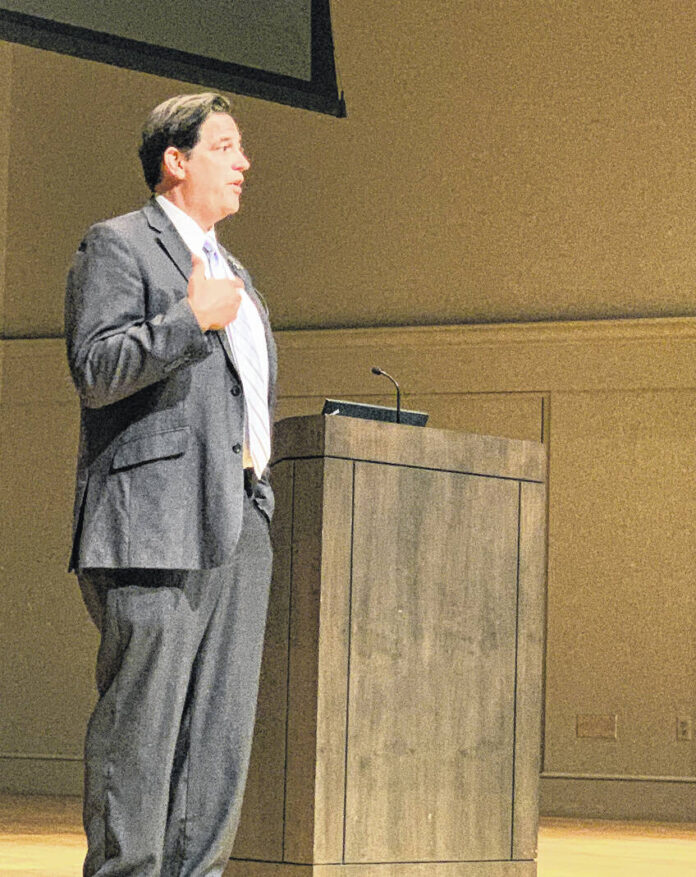BLUFFTON — While programs like the 1970s cartoon series “School House Rock” may spark an interest in the U.S. Consitution and American history for children, college students have the opportunity to gain a deeper understanding of the nation’s founding document. This is because universities across the United States receiving federal funding are required to have an annual Constitution Day.
The Constitution was signed on Sept. 17, 1787. On Tuesday afternoon, Bluffton University honored the founding document’s 235th anniversary by hosting an assembly for students to focus on how this country conducts its political process. This year Bluffton University chose Ohio Northern University professor Rob Alexander to address students about the Electoral College. This process of electing the executive branch was established in Article II, Section 1 of the Constitution.
Alexander touched on how opinions of this electoral process may differ across the country.
“The institution of the Electoral College is a little bit like the weather,” Alexander said. “People know something about it. They have opinions on it, but when you dig a little bit deeper into it, your opinions might change. You learn there is more going on than perhaps meets the eye.”
Members of the electoral college are chosen by the Republican and Democratic parties in each state. In the general election, voters select a president, a decision that then dictates which electors will vote.
”Electors are charged with voting for these presidents,” Alexander said. “They vote about a month after. In the 2000 election, we had a misfire election. It is when the winner of the popular vote does not win the electoral vote. George W. Bush won the electoral college but lost the national popular vote by about 500,000. It came down to one state: Florida. You have to have a majority of 270 out of 538 to win the electoral college. George W. Bush won by 271.”
Alexander continued to discuss the beginning of the Electoral College in the United States.
“The same arguments that we hear today are the same arguments they had in the 1700s,” he said. “So they said let us combine all the ideals together. Now we have a combination of House and Senate representation, state-by-state elections and independent electors. The college was not chosen because of their discretion, not for their judgment, but their obedience [or] fealty to a party.”







